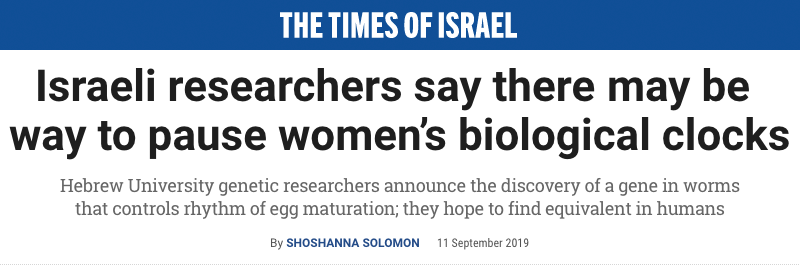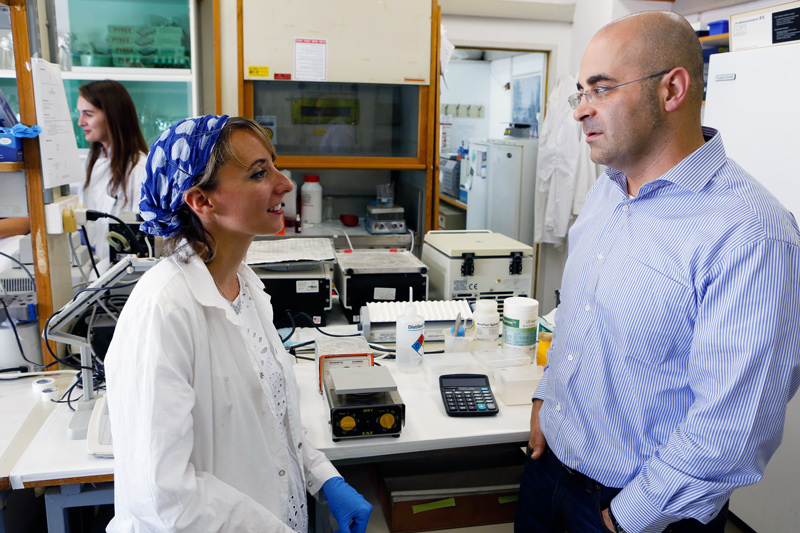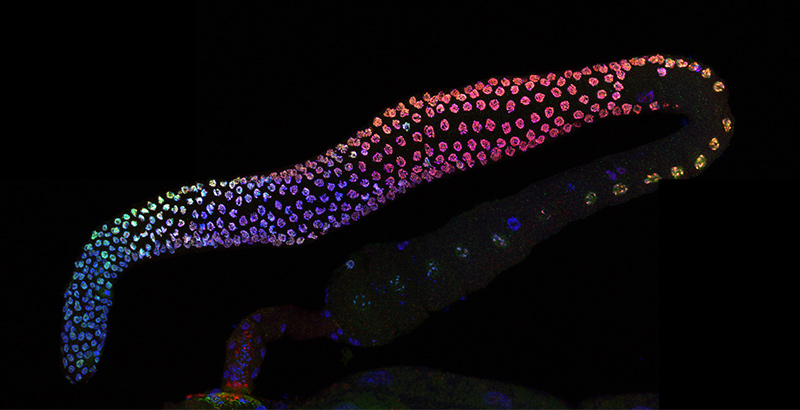
When the age of 30 approaches many women start paying attention to their biological clock and their chances to conceive.
Indeed, human eggs begin to mature from the onset of a woman’s first period, at the age on average of 10 to 15. With the passage of years, the eggs age and their quality decreases.
“The critical age is 35,” said Dr Yonatan Tzur, a researcher at the Hebrew University of Jerusalem’s Genetic Department, said in a phone interview. “From then on, the quality of eggs drops fast,” making it much harder for women to conceive. Older egg cells are also the main cause of birth defects and miscarriages.
While vitro fertilization (IVF) techniques allow doctors to select the best eggs, women above the age of 35 have a harder time producing a healthy baby with their own eggs, and for women 40 years or older, the success of IVF goes down significantly, prompting women to use donor eggs.

This, along with the fact that the average age of first-time mothers in the Western world is increasing sharply, makes finding a way to slow down egg maturation crucial.
What if women could press pause on their biological clocks? What if there were a way to delay the deterioration of egg quality? Tzur and his team embarked on a quest to find the mechanisms that control ovarian development and egg cell aging.
In a study published in the scientific journal Genetics, Tsur and associate Dr. Hanna Achache, along with scientists at Harvard Medical School, say they have discovered the switch that may do just this – in worms.
They are hopeful that this breakthrough may help women extend their fertility windows and maintain high egg quality into their thirties and forties.

Tzur and the team studied egg maturation in roundworms. Though tiny, the roundworms, C. elegans, have helped scientists understand human genetics, as they contain the same number of genes as humans do (20,000) and their eggs mature in about one day.
Tzur and his team monitored the changes in each of the worm’s 20,000 genes during egg formation and were able to pinpoint one, ogr-2, that was found to control the rhythm of egg maturation. They also found that this gene interacts with a biochemical switch called MAP Kinase (MAPK), which has a role in activating or switching off various developmental processes.
Several genes control the MAPK switch, but when the researchers removed the ogr-2 gene with CRISPR gene-editing technology, the MAPK switch “went into overdrive” and the worms’ eggs aged very quickly. They realized that under instructions of the ogr-2, the MAPK can turn egg development on and off.
“We tested the gene’s role by removing it from the worm’s gene sequence,” said Tzur. “Instantly, these ‘edited’ worms became less fertile and their eggs more closely resembled those of an older worm.”
“Suddenly the young eggs looked very old,” he said.”It was really cool.”
The researchers are now testing if the same thing happens in humans, he said, “to see if we can activate or repress a switch and help older women conceive.”
Humans also have the MAPK switch, he said. “But we don’t know when it turns on and off and what activates this,” so the research is still at a very early stage.
Once the equivalent of the activator ogr-2 gene is found in humans, he said, perhaps a food additive could be devised that increases its activity. Or during IVF procedures, the MAPK switch could be manipulated to make it more receptive to sperm, just like a younger egg is, he said. This could improve women’s chances of having a healthy baby as they get older.
See C Elegans in all her (egg maturation) beauty in this 3D video: